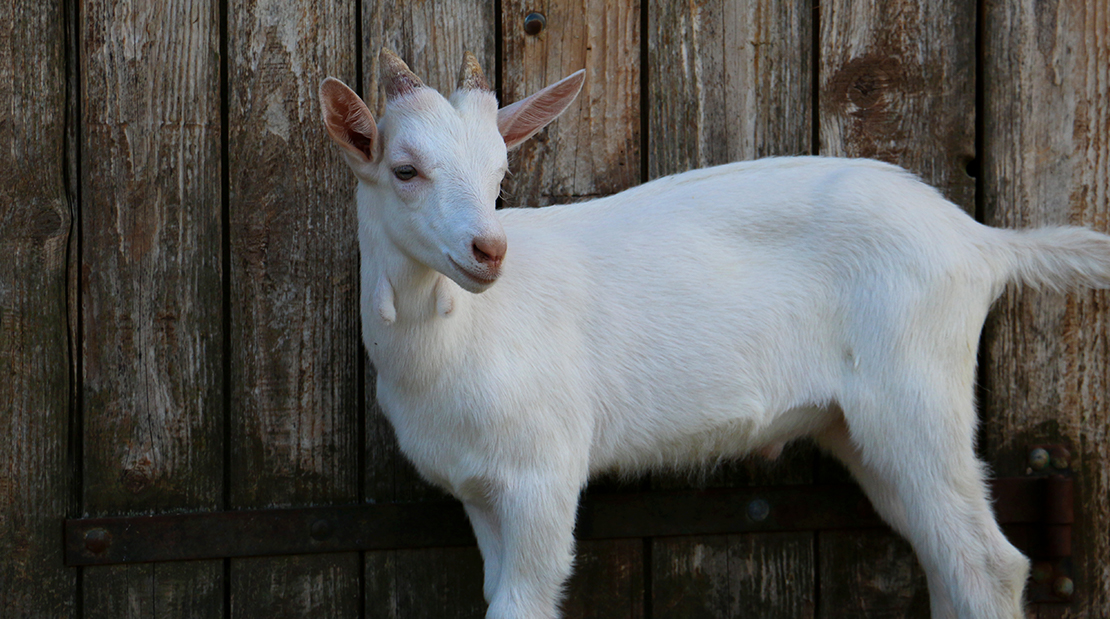
Goats
Whether you are looking towards goat ownership for milk, yard needs, or just to name him Billy, there are several things you should know regarding preparation and their care.
The percentage of those who keep goats solely as pets are few. They are a pact animal and prefer to be in herds. Thus, they are generally kept as a production animal. Goats are also browsers. They eat grass, hay, pelleted food, and similarly to deer, they tend to stand on their hind legs and eat out of trees. So, their food maintenance is rather ideal because if you have plenty of vegetation around, it’s like a grand buffet for your herd.
While seemingly an abnormal purpose, goats were used historically to mow down fields. People have even been known to rent goats—as opposed to machines— for mowing purposes of clearing foliage, weeds, etc.
Goats need a comfortable environment and should be housed outdoors. However, their coat does not provide adequate protection from heat, cold, or rain. So, they need a shed or barn at their disposal to provide shade and refuge for extreme high and low temperatures and inclement weather.
Two of the most common things goat owners should be aware of is:
- Parasites – The parasite haemonchus contortus—also known as the barber pole worm— is a blood sucker that could potentially cause anemia in goats. In extreme circumstances, it can cause death, sometimes within days of being diagnosed. We check for conditions like this by looking at the animal’s lower eyelids for any variances of color which could signify a problem.
- Predators – It’s ideal to have secure fencing to prevent escape and predator entry. Installing a hot wire electric surge fence to keep them in is an option. Ensure measurements are accurate because depending on the fence height, predators could be able to sneak in.
As with any other animal, there are precautionary measures that can be taken to create a stable and quality life for goats. When they are kid it’s important for them to have the Clostridium and Tetanus vaccines. They also should receive booster shots and undergo strategic deworming and fecal testing because they are very susceptible to parasites, which could be fatal.
Though males are commonly castrated, that makes them more susceptible to urethra blockage. Goats are also are prone to pneumonia when they’re young. This is more common for them because they are ruminant, meaning they have a 4-chamber stomach and can develop severe bloat.
Here are a few common signs that could indicate illness:
- Loss of appetite
- Bloating (particularly on left abdominal area of their ruminant)
- Coughing
- Sneezing (nasal discharge)
- Diarrhea
- Lethargy
- Existence of pale or white mucus membrane
As always, doing your research and developing a relationship with a vet who has experience will help you understand goat psychology.

